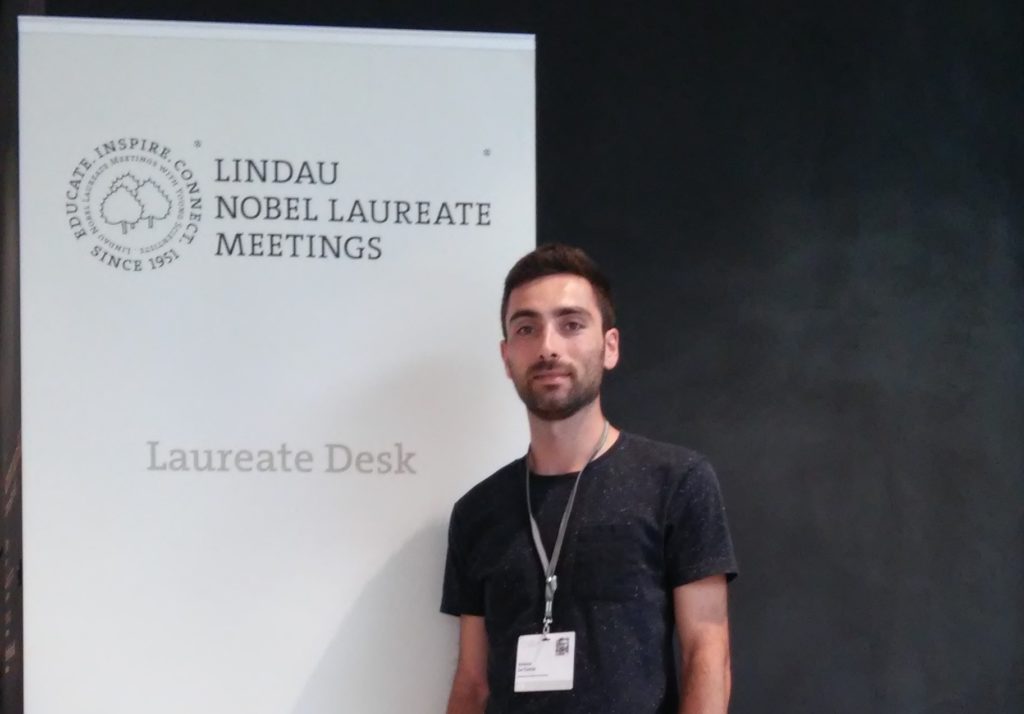
The annual Lindau Nobel Laureate Meetings foster the exchange among scientists of different generations, cultures, and disciplines. Around 30-40 Nobel Laureates convene in Lindau, Germany to meet the next generation of leading scientists: 600 undergraduates, PhD students, and post-doc researchers from all over the world.
Earlier this year, Foundry user Roberto Lo Conte, a Post Doc working at the Foundry’s NCEM facility, was invited to be one of this year’s 580 attendees. Here is what he had to say about his experience:
When I received the confirmation that I had been selected to be one of the 580 young scientists to attend the 69th Lindau Nobel Laureate Meeting I was super excited! I immediately started imagining myself interacting with the Nobel Laureates (true heroes for me) and the other young scientists, discussing Physics and how science can help solve some of the most pressing challenges for humanity. Then the time to attend the conference came (June 29 – July 5), and there I was, in the beautiful place that is Lindau island on Lake Constance (at the border between Germany and Switzerland). The perfect scenario to have meaningful conversations about science and society!
Once the meeting started, I immediately realized that the week ahead of us would be even better than what I had imagined. Brian Schmidt (Nobel Laureate in Physics 2011) delivered a very powerful keynote speech, focused on the importance of the scientific method and how it can solve the most pressing issues of our times, such as climate change and the rising socio-political instability all around the globe. In the following days, I enjoyed listening to the very different stories of how the Nobel Laureates achieved the scientific discoveries for which they received their prize. However, my favorite parts of the meeting were the Agora Talks and the Open Sessions with the Nobel Laureates, where we (the young scientists) had the chance to ask them not only about their scientific achievements, but also about their failures, their career paths and how they dealt with work-life balance earlier in their scientific careers. All of this was so eyes-opening for me, and made me to re-think how to define success and failure in science.
Finally, I had the incredible experience of connecting with other young scientists from all around the globe (people from 89 different countries attended the meeting this year). We discussed our work, scientific interests, and career goals as well as the sessions and lectures we attended. I felt part of a global family, which has no boundaries and no colors. A family where everyone is equal and at the same time unique. I am proud to be a part of it!

